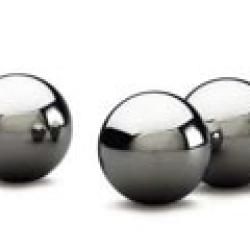Source Institutions
Source Institutions
Add to list Go to activity
Activity link broken? See if it's at the internet archive

In this activity, learners explore the concept of friction and how ball bearings reduce friction. Learners investigate different uses for ball bearings, how the design has changed over time to incorporate roller bearings, test friction using marbles, and identify the use of ball bearings in everyday items.
- Under 5 minutes
- 45 to 60 minutes
- $1 - $5 per group of students
- Ages 8 - 18
- Activity, Lesson/Lesson Plan
- English
Quick Guide
Materials List (per group of students)
- Student Resource Sheets
- Student Worksheets
- Jar lid (from mayonnaise or similar container)
- 25 identically sized marbles (larger than depth of lid used)
- Book
- Section of carpet or rug
- 100 pencils (optional)
- Tape (optional)
- Rubber bands (optional)
Subjects
-
Engineering and Technology
-
Engineering
- Mechanical Engineering
- Technology
-
Engineering
-
Physical Sciences
-
Energy
- Work and Machines
-
Motion and Forces
- Machines
- Momentum and Velocity
- Structure and Properties of Matter
-
Energy
-
The Nature of Science
-
The Scientific Process
- Asking Questions
- Conducting Investigations
- Formulating Explanations
- Communicating Results
-
The Scientific Process
-
The Nature of Technology
-
Technology and Society
- Impacts of Technology
- Technology and History
-
The Design Process
- Invention and Innovation
-
Technology and Society
Informal Categories
- Toys
Audience
To use this activity, learners need to:
- see
- read
- touch
Learning styles supported:
- Involves teamwork and communication skills
- Involves hands-on or lab activities
Other
Components that are part of this resource:
Includes alignment to state and/or national standards:
This resource is part of:
Access Rights:
- Free access
By:
Rights:
- All rights reserved, IEEE,
